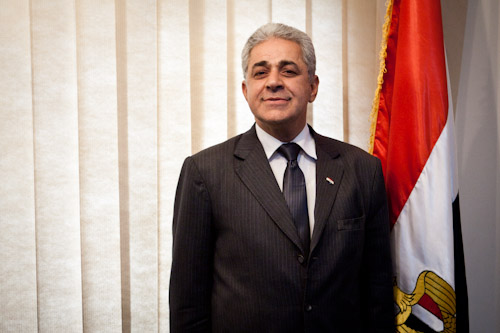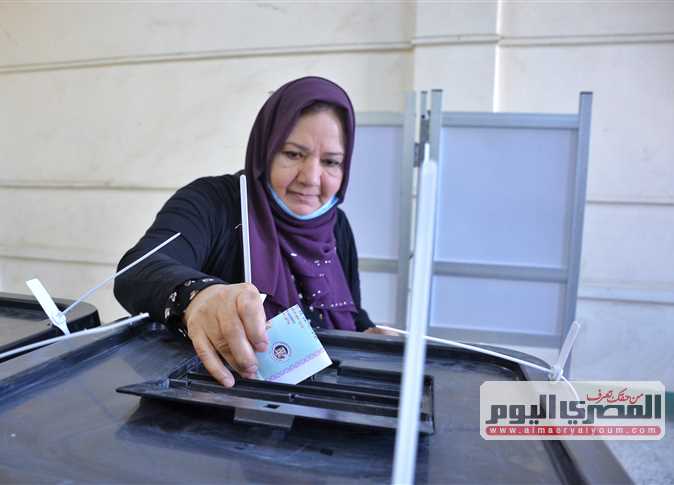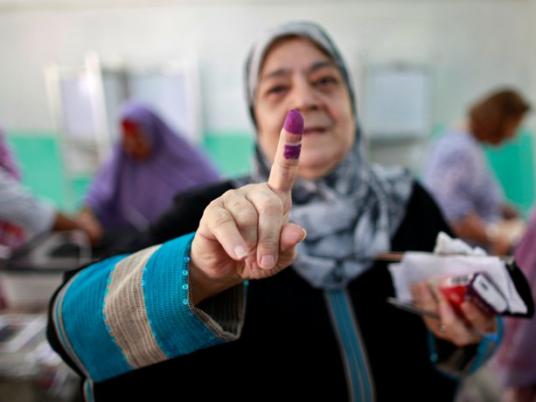
Presidential hopeful Hamdeen Sabbahi said he fears a return to autocratic rule in Egypt, telling AFP that the army chief, a likely election frontrunner, has failed to dispel these concerns.
Sabbahi, 59, who came third in the 2012 presidential election that Islamist Mohamed Morsi won, is seen by his supporters as a serious challenger, but Field Marshal Abdel Fattah al-Sisi is widely tipped to win the poll if he stands.
The election, part of a road map outlined by Egypt's interim military-installed authorities for a return to democratic rule, is expected to be held by mid-April.
While his chances of winning against Sisi are seen as slim, Sabbahi said in an interview with AFP that young members of his leftist Popular Current, which he founded in 2012, encouraged him to run for the presidency.
Youths who took part in the 2011 uprising that toppled longtime president Hosni Mubarak "feel that their revolution was being stolen… as their comrades were being jailed and some killed before their eyes".
"Mubarak's men are now making a comeback," Sabbahi said, adding that Sisi "has not taken a position that could comfort the youths regarding the danger… which is the return to power of those who symbolised corruption under Mubarak".
Sisi, who has yet to formally announce his candidacy, is the most popular public figure in Egypt after he led the ouster of Morsi in July following mass street protests against the Islamist's turbulent one-year rule.
Sabbahi said his intention to run for the presidency was also driven by concerns that "this election would feature only one candidate (Sisi) and would turn into a referendum".
Sabbahi expressed hope that youths who represented a "key voting" bloc would back him after many shunned the January referendum on a new constitution.
He also criticised a law adopted by the interim authorities in November to ban all but police-sanctioned protests, saying it was a "political error" and urged interim president Adly Mansour to release all who were jailed for participating in peaceful protests.
The law "in its present form restricts more than it regulates," said Sabbahi.
"The killers of Khaled Said are still to be sentenced, but the youths who demonstrated to demand that they be held accountable have been sentenced to jail," he said, referring to a blogger whose killing by police in 2010 became a symbol for the anti-Mubarak uprising.
'Brotherhood should respect popular will'
Sabbahi urged the Muslim Brotherhood to acknowledge Morsi's ouster.
"The Brotherhood… should respect the popular will and stop describing the June 30 revolution as a coup, and stop offering any political cover to terrorism," he said.
Millions of Egyptians had taken to the streets on June 30 demanding the resignation of Morsi — the country's first elected and civilian president — accusing him of monopolising power and ruining an already deteriorating economy.
In the interview, Sabbahi accused the Brotherhood of committing two errors.
One was to "monopolise power when they ruled," and the second was "resorting to violence and capitalising on terrorism carried out by their political allies," he said.
Egyptian authorities declared the Brotherhood a "terrorist" organisation in December after accusing it of a deadly bombing north of Cairo. The movement denied the attack which was claimed by an Al-Qaeda-inspired group.
Sabbahi said he was in favour of tackling terrorism with "utmost firmness" but called for "balance between the imperatives of confronting terrorism and the imperatives of respecting freedoms".
Banking on youths, Sabbahi said the "awareness of Egyptians" would help them choose the candidate "most able to ensure social justice for the majority" and who can best respect "the dignity and freedoms of the people… and establish a democratic regime".
Sabbahi said that even if he lost the election, he would have "at least reconnected the revolutionary forces with the general public".




